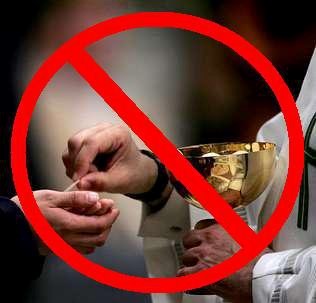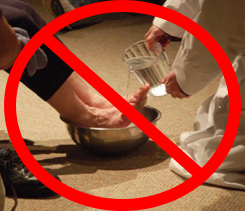Sermon 4/9/2020 “Cleansing vs. Being Cleansed”
Preacher: Jo J. Belser
Location: Church of the Resurrection in Immanuel Chapel, Alexandria, VA
Text: John 13:1-17, 31b-35
Day: Maundy Thursday 2020
We Christians remember this night, Maundy Thursday, because on this night some 2,000 years ago, Christ Jesus shocked his disciples in two profound ways. First, he took the role of a lowly servant girl by washing their feet. Second, Jesus instituted the Eucharist by insisting the Bread and Wine he gave them were his body and blood, shed for “you.”
Shockingly tonight, we are going to remember these acts by “re-membering” them but not DO either of them. No foot washing. No Eucharist. At least not in the ways we usually re-member these acts of so long ago we hold sacred. We usually “re-member” —reenact them to ritually — to make them present to us today. But perhaps by breaking temporarily from our liturgical tradition, as we must due to pandemic concerns, we will understand our tradition in a deeper way, preparing us to observe them more deeply next year.
Let’s start with the Eucharist. Jesus gathered his disciples mere days before his crucifixion in the Upper Room to observe Passover, a ritual or liturgical “meal” re‑membering how God had saved their ancestors from slavery in Egypt.
The Passover observance sets an extra cup at the table traditionally reserved for Elijah because the prophet Malachi foretold Elijah would return to usher in the coming of the Messiah. The Passover observance includes a song inviting Elijah (and thus the Messiah) to come quickly through a door left open for them.
No one knows which cup Jesus used from the Passover table when he took a cup and offered the wine to his disciples. However, Jesus’ actions that night in the Upper Room just before his death only make sense if he used the Elijah cup.
I doubt Jesus’ disciples were shocked to hear Jesus’ admission he is the Messiah; they had seen him heal the sick and raise a man from death. However, they may have been shocked that he changed the Passover liturgy—Passover is Passover, the liturgy is the liturgy. Who would dare change them?
Through today’s pandemic—not the illness, not the disruption, not the fear—but through the EXISTENCE of the pandemic Christ is speaking to us. “Re-member me tonight by receiving me and sharing me in a this way: not by taking me into your physical being in the Bread and Wine, but through my very Spirit pouring into and through you in spiritual Communion.”
You may be asking Jesus, though, “Why must we endure this pandemic? Why this disconnection of all that has gone on before and all that will go on in the future?” Christ Jesus apparently knows using the Elijah cup, now the Christ cup, won’t get our attention in this age.
Am I saying Christ—God—caused this pandemic? NO! We did that, with our overpopulation and our greed. But the question tonight isn’t WHY the virus, but HOW? How will we use what God has given us to re-member his son Jesus in our broken world?
Which brings me to the foot-washing we won’t do tonight, to the handwashing we already did. In Jesus’ time, being a good host required he provide a servant to wash his guests’ feet. Feet got very dirty then, due to wearing sandals, walking, dusty roads, and (um) the like.
Jesus was the host of this Passover and he had provided NO servant, NO foot-washing. Clearly, this was intentional. Jesus would have recalled Exodus 30:17-20, which reports God telling Moses how to construct the Tabernacle: Moses was to make a bronze basin and stand and place them between the Tent of Meeting where all priests could enter and the Holy of Holies, the altar that only the High Priest could enter, and then only once a year on the Day of Atonement. The water in the basin was for the High Priest to wash his hands and feet when he went between the Holy of Holies and the Tent of Meeting, “lest they die,” scripture says.
In Moses’ day, the hand- and foot-washing were a ritualized form of holy hygiene, to make the priest pure from what they had done and from where they had gone. Jesus turned this ritual around when he washed the disciples’ feet. The teaching that followed about the advisability of asking Jesus to wash feet versus washing one’s whole body reveals Jesus’ point wasn’t about hygiene but about being cleansed spiritually. And the point was one of service: Jesus showed us that to lead is to serve others.
Washing our whole body, as Peter asked, wasn’t necessary because we have already been made clean by Christ Jesus: by his death, his resurrection, his sharing his Spirit with us and by us inviting his Spirit to guide our lives.
We need to tend daily to the metaphorical “dirt” that has accumulated that day, like actual dirt accumulates on our skin. We do this by following Christ’s instruction to love one another as he loves us, to forgive each other daily as the Father forgives us, and to tend daily to our spiritual dirt.
So, tonight we washed our hands. Not as holy hygiene—although staying spiritually fit is important—but as God told Moses and as Jesus told us: so we can share what we have received at Christ’s altar, given for us on the Cross, and shared via Elijah’s cup: pure love. Make THIS your ritual, your liturgy during the pandemic. As you wash your hands, use those precious 20 seconds to ask Christ Jesus to allow you to share his love somehow, safely, in our plague-filled world.
on the Virginia Theological Seminary campus (during a pandemic)
sermon is at 12:09 to 19:32



